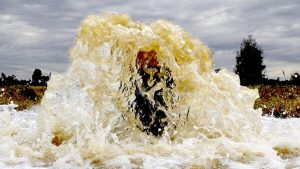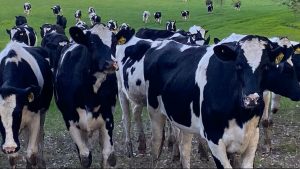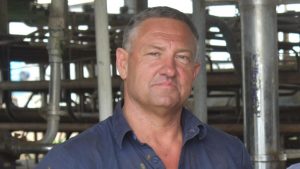
Neither delivered everything Australian Dairy Farmers (ADF) is seeking on behalf of members, yet, together, they made commitments that support three objectives in our 2022 Federal Election Policy Statement:
- an improvement in nutritional health in Australia, especially in aged care, and abroad
- an investment in planning and infrastructure to grow jobs and liveability in the regions
- an increase in dairy sustainability and productivity through innovation and markets.
The budget reply from opposition leader Anthony Albanese was silent on agriculture, however dairy farmers stand to benefit from a pledge by Labor to set minimum standards for nutrition in aged care. This is a policy based on science and if properly executed will increase the consumption of dairy foods in residential aged care.
Research shows that when aged care residents increase their daily intake of dairy foods from two to 3.5 serves per day the incidence of fractures and falls declines. Fractures are reduced by one-third. ADF has been calling on politicians to consider how they can help resolve malnutrition in aged care. This commitment to better nutrition delivers and warrants bi-partisan support.
The budget reply, however, did not acknowledge the importance of agriculture to Australia’s economy. It overlooked that revenue derived by agriculture is shared across the economy.
By contrast, the budget from the government, recognises that farming feeds and clothes Australians. It contained spending on initiatives that support two of ADF’s other key policy objectives – more investment in regional development and more funding for innovation to increase sustainability and productivity.
Dairy farmers will be pleased to see initiatives in the budget addressing the increasing cost of farming, including flood recovery, and further support to grow jobs in our regions.
Key announcements in the budget that support the dairy sector include:
- The fuel excise and excise-equivalent customs duty rate that applies to petrol and diesel will be halved for six months, which will create savings for every dairy business as of today.
- Over $2 billion in support measures for flood affected primary producers, small businesses, not-for-profit organisations and councils will help the 190 dairy farms that have been impacted by the NSW and Queensland floods.
- $6.9 billion investment in nationally significant, transformational water infrastructure projects to assist in developing regional communities and an additional $137.4 million towards infrastructure and compliance initiatives for the Murray-Darling Basin, which will address water security.
- $2 billion to establish the Regional Accelerator Program (RAP) to drive transformative economic growth and productivity in regional areas, potentially supporting some of Australia’s dairy industry’s regions to enhance their supply chain competitiveness.
- Over $1.2 billion to expand mobile coverage, connectivity, resilience and affordability in regional Australia which will assist in stimulating adoption of digital technologies.
- $250 million to extend the Modern Manufacturing Initiative to support businesses in priority sectors – including agriculture – to deliver high impact projects such as domestic manufacture of fertiliser and other inputs.
- $148.6 million to support more investment in affordable and reliable power, including the development of community microgrid projects in regional and rural Australia such as replication of the Nowra bio-digestor plant in other dairy regions.
Some of these and other initiatives in the budget support delivery of the ADF’s policy statement.
In particular, the investment in R&D is welcome. Concessional tax treatment for corporate taxpayers who commercialise their eligible patents linked to agvet chemical products, and $505.2 million to support university research projects from proof of concept to commercialisation will in time bring benefit to the farm gate.
Policies that drive nutritional health, regional jobs and on-farm productivity and sustainability support dairy’s economic recovery and set the foundations for agriculture to grow to $100 billion by 2030.
We can expect further announcements during the election campaign in coming weeks.
The next three years is a defining period for the sustainability of the Australian dairy industry.
With the right policy settings, the next government can ensure the dairy sector sustains its contribution to life in Australia.
























